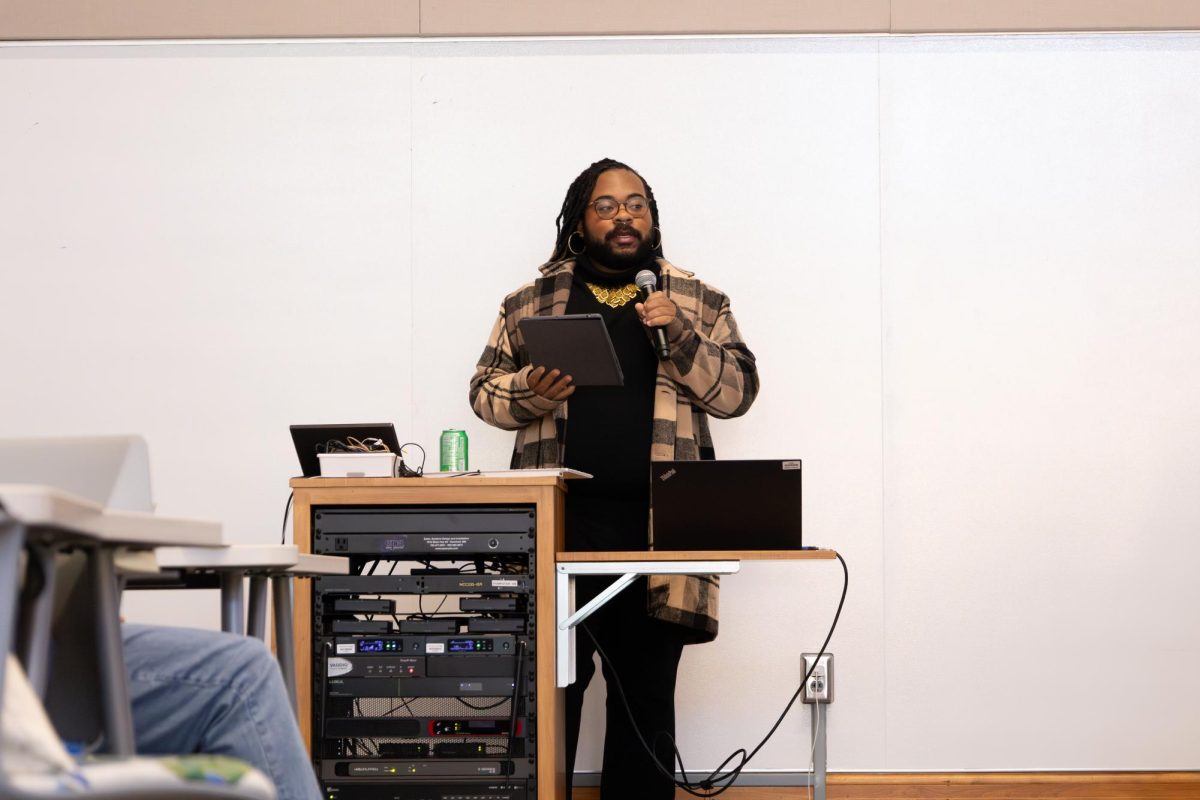For many Carleton students, the intersection of math and music is a personal one. Nowhere is this more evident than the high attendance, followed by considerable backlash, at last week’s series of talks by renowned mathematician, musician, author, baker and scientist-in-residence at the School of the Art Institute of Chicago, Eugenia Cheng.
From Wednesday, October 2 to Thursday, October 3, Cheng visited as the featured speaker for “Math Across the Cannon,” an annual event hosted jointly by Carleton and St. Olaf. Her visit was supported by The Elizabeth Nason Distinguished Women Visitors Fund, the Michael Morrill Fund, the Carleton Department of Mathematics and Statistics and the St. Olaf Department of Mathematics, Statistics and Computer Science.
Talks and performances on the fusion of these two disciplines promised to be a dynamic exploration, well publicized by the Math and Statistics Department. Sure enough, Wednesday’s talk, “The Sum of the Score,” was so highly attended that it had to be moved from Applebaum to Kracum Hall to accommodate the volume of people.
Sat at the grand piano looming before a large audience of Carleton students, staff, faculty and community members, Cheng came to life as she swayed with the Bach piece that her fingers so deftly performed.
When she finished playing, Cheng turned to her presentation slides and explained how a graph of sine waves corresponded with each component of the Bach piece.
While math accessibility served as the backdrop to Cheng’s talks, Cheng took a moment to talk about teaching and how we often learn math in isolation from other disciplines. She described herself as attempting to cure the public of “math-phobia.”
“I found that the way we teach progressively excludes people from mathematics,” she explained. “It should not be a series of hurdles. Pure mathematics is a framework for agreeing on things,” said Cheng.
Following Cheng’s execution of another piece on the piano, she turned to her own research, category theory, a branch of mathematics that is not considered particularly accessible. Cheng herself acknowledged that the area of study is “too theoretical even for some theorists” and doesn’t rely on an understanding of other cuts of mathematics.
Many students began growing frustrated as Cheng’s piano playing and sine waves swerved into more elitist ideological territory. By the time the question and answer came around, the discussion veered towards what kinds of math and music are worth studying and who gets to decide. Jez Bigornia ’20 who overall enjoyed the talk, was somewhat miffed after asking a question about the intersection of math with musical genres other than classical to which Cheng replied that other types of music that focused on melody “were not very interesting.”
“Not only did it show her ignorance towards almost all other music, but it made me feel stupid for asking the question. Given jazz and blues’ huge artistic and social influences on music, her response baffled me. It almost felt like those other genres didn’t matter,” said Bigornia.
For a topic that clearly yielded an abundance of student interest, it is disappointing that Dr. Cheng’s talk was not more inclusive. While moments were engaging, the talk was sullied by rhetoric that perpetuates the hierarchy between high and low culture, and didn’t allow for valuable discussion on expanding the accessibility that Cheng so claims to extol.
Correction October 14th, 2019: an earlier version of this story referred to Cheng as Ms. Cheng instead of Dr. Cheng










